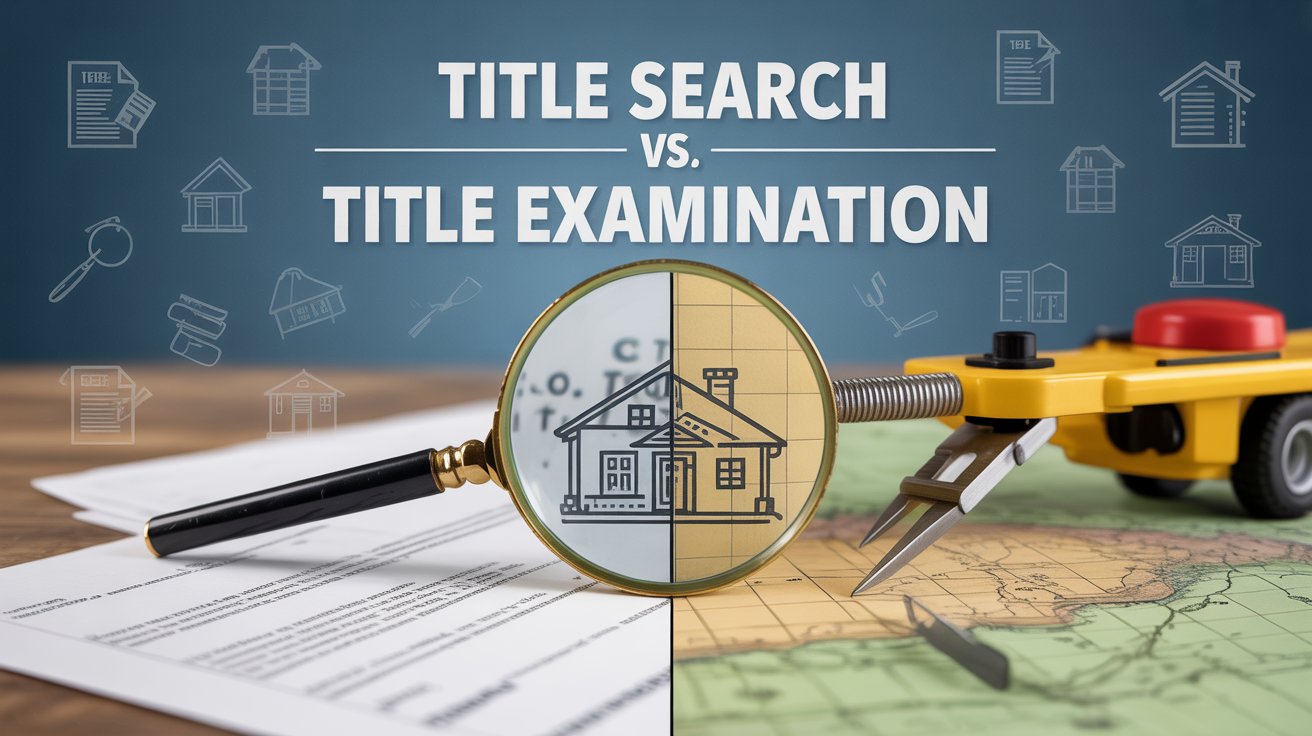Owner’s vs. Lender’s Title Insurance: Why You Might Need Both?

When purchasing real estate, title insurance is a key layer of protection but many buyers are unaware that there are two types: Owner’s Title Insurance and Lender’s Title Insurance. Each plays a vital role in safeguarding against different risks. While one protects the buyer’s ownership rights, the other secures the lender’s financial interest. Understanding the core differences between the two can help you make an informed choice during your property transaction.
What Is Owner’s Title Insurance?
Owner’s Title Insurance is a title policy that protects you the property buyer against financial loss caused by defects in the property’s title. This includes issues that may not have been discovered during the initial title search, such as undisclosed heirs, forged documents, or boundary disputes. The policy remains valid as long as you or your heirs own the property, giving you long-term protection and peace of mind.
This title protection ensures that in case a dispute arises over your legal ownership, your policy can cover legal costs and losses in property value. While it’s optional, it is highly recommended because it helps secure your ownership rights beyond the lender’s interests.
What Is Lender’s Title Insurance?
Lender’s Title Insurance, often called a loan policy, is typically required by the mortgage lender during a real estate closing. This policy protects the lender’s investment by ensuring that they have a valid lien on the property. In case a title issue surfaces that affects the lender’s ability to recover the loan such as an unknown lien or fraudulent transaction the insurance covers the lender's loss.
Unlike the owner's title insurance, this policy is valid only until the loan is paid off or refinanced, and it does not protect the buyer.
How Do These Title Insurance Policies Differ?
Here's a side-by-side breakdown of the core differences between the two title policies:
Both policies are one-time payments made at the time of closing and do not require monthly or annual premiums. In many cases, you can even purchase them as a bundle at a discounted rate.Why Do You Need Both Owner’s And Lender’s Title Insurance?
Having both title insurance policies ensures you are protected from all angles. While your lender is concerned only with the amount they’ve loaned you, you need protection for your legal ownership rights, your investment, and your future resale value.
Here are examples of why having both matters:
Without owner’s title insurance, you may face unexpected legal issues like missing heirs or undiscovered encumbrances and you’ll have to bear all legal costs yourself.
Without lender’s title insurance, your loan may not be approved or may fall into jeopardy if a dispute arises that affects the lender’s lien.
In short, the owner's title insurance covers YOU, and the lender's title insurance covers the BANK. To be fully covered, especially in complex scenarios like foreclosure properties, estate sales, or auction homes, both policies are essential.
What Does Title Insurance Cover?
While the policies differ in their beneficiaries, both share coverage for common title issues such as:
- Errors in public records
- Forgery or impersonation
- Undiscovered liens
- Invalid or improperly recorded deeds
- Undisclosed heirs or wills
- Survey and boundary disputes
The owner’s policy provides broader coverage and even pays for legal defense fees if your ownership is challenged.
Is Title Insurance A One-time Cost?
Yes. Both types of title insurance are paid once at the time of closing. There are no recurring premiums. Many title companies offer simultaneous issue rates or discounts when you buy both policies together, reducing your overall title insurance cost.
Conclusion: Double Protection Is Smart Protection
Choosing both owner’s and lender’s title insurance is a smart move when closing on a property. While it might be tempting to skip optional coverage, the risks of not having owner’s title insurance can lead to substantial financial and legal headaches. Title insurance is not just a checkbox on your closing list it’s a long-term shield against hidden risks that could surface years down the line.
If you're working with a trusted provider like Stellar Innovations, you’ll receive expert guidance to help you make informed decisions on title protection and mortgage services. Your peace of mind starts with understanding the importance of both policies.
Frequently Asked Questions
1. Is It Mandatory To Buy Both Owner’s And Lender’s Title Insurance?
No. Lender’s title insurance is usually mandatory if you are taking a mortgage. Owner’s title insurance is optional but highly recommended for protecting your ownership rights.
2. Who Pays For Title Insurance At Closing?
It varies. Typically, the buyer pays for the owner’s policy, while either the buyer or seller may pay for the lender’s policy. This is often negotiable.
3. Does Owner’s Title Insurance Expire?
No. It remains in effect as long as you or your heirs own the property.
4. What Are Common Risks Covered By Title Insurance?
Risks include undisclosed heirs, unknown liens, forgeries, errors in public records, and legal disputes over property boundaries.
5. Can I Bundle Both Title Policies To Save On Cost?
Yes. Many title companies offer bundled options or simultaneous issue rates that provide a discount when purchasing both policies together.
Note: IndiBlogHub features both user-submitted and editorial content. We do not verify third-party contributions. Read our Disclaimer and Privacy Policyfor details.







